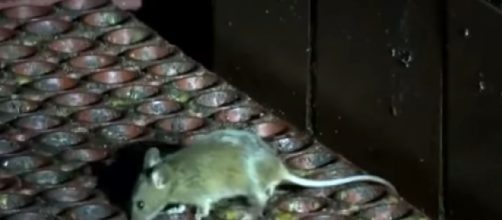Rats usually survive on food wastes, but because of coronavirus, there is a lockdown. The disease is highly contagious, and people venture out only to attend to urgent work, and visits to hotels and restaurants have reduced drastically. Shutters are down on most of the eating joints. Even many of the offices are closed to prevent the spread of contamination. The result is a scarcity of food for the rodents, and they have shifted their attention to residential areas of London. As a pest controller says - "Rats are like little survival machines; wherever you get reliable access to food waste, they'll keep coming back." They are usually found in rubbish bins' vicinity, but a shortage of food has forced the pests to be on the move and search for new areas.
They have modified their strategy because restaurants and office buildings in London are empty, and the rodents have had to identify new alternatives. Their presence in human habitats has increased. The pandemic has affected the lives of not only humans but also animals.
CNN says families are spending more time at home, and there is an increase in food waste. These attract the rats, and they invade the neighborhood. The problem is increasing and with the spread of the work-from-home culture. The City of London could be in for a big surprise when it reopens after lockdown ends, and the authorities might have to recast their pest control plans.
The activity of rats went up from the first lockdown to the next
Members of the British Pest Control Association BPCA confirmed an upward trend. The first lockdown was in the spring of 2020, and after it, there was a noticeable increase in rodent activity. Then came another lockdown, and the activity increased still further. This is an issue of public health, but homeowners have to tackle the problem on their own. CNN quotes an official saying - "We may see rats now where we wouldn't normally because they are so desperate. Rats can chew through tough substances like soft metals and brick." There appears to be a sense of helplessness all around. In December 2018, the White House faced the menace of rats.
Rats can multiply fast
The number of rats in London is anybody’s guess. CNN adds there are no official figures, but private surveys from exterminators put the number at several million. Human inhabitants of the city, as per the Office for National Statistics, are much less. Moreover, rats can multiply fast, and that can worsen the situation within no time. A study commissioned by the Greater London Assembly GLA in 2017 mentioned that the city should focus its attention on this issue. The rats' size is also increasing, and there is a need for traps that are strong enough to tackle the menace and poisons more powerful. In September 2019, New York planned to introduce alcohol to control the threat of rats.
Hungry rats migrate to people’s homes in search of food
According to Express UK, many restaurants and office buildings in London are now empty due to lockdown. Rats are hungry, and they have migrated to people’s homes in search of food. This has added to the problems of pest exterminators. They have to attend to call-outs they receive and have to deal with the issue. Natalie Bungay of the BPCA gives some possible measures to control the menace. She says it is all about prevention. Her suggestions are to seal off any food waste outside the house in suitable containers. Another option is to keep food locked away inside the house. Then there are air vents which, if open, provide easy access for the pests.
These openings need to be protected with steel mesh to block entry points. Methods of this nature can go a long way to remove the menace. People must realize that there is no Pied Piper of Hamelin around who would come along with his flute to lure the pests to their doom.


